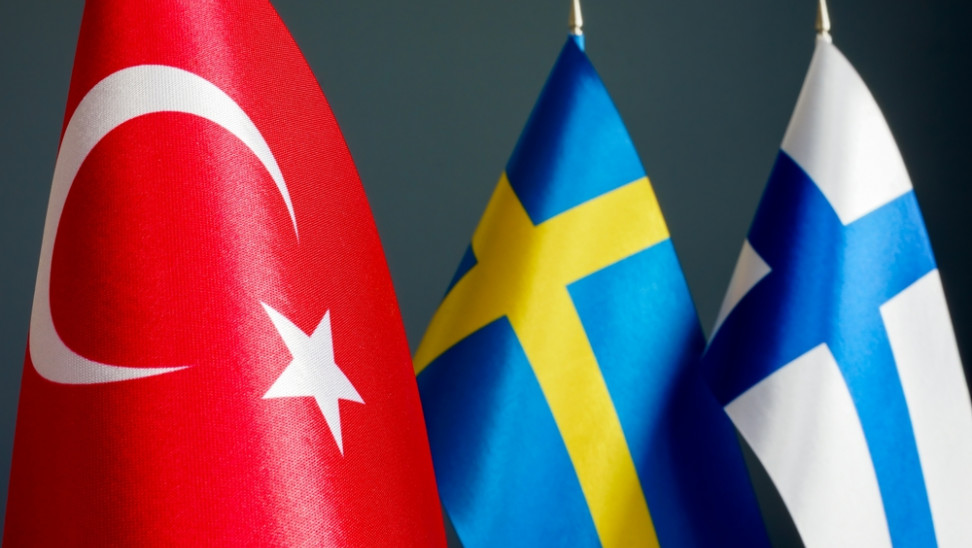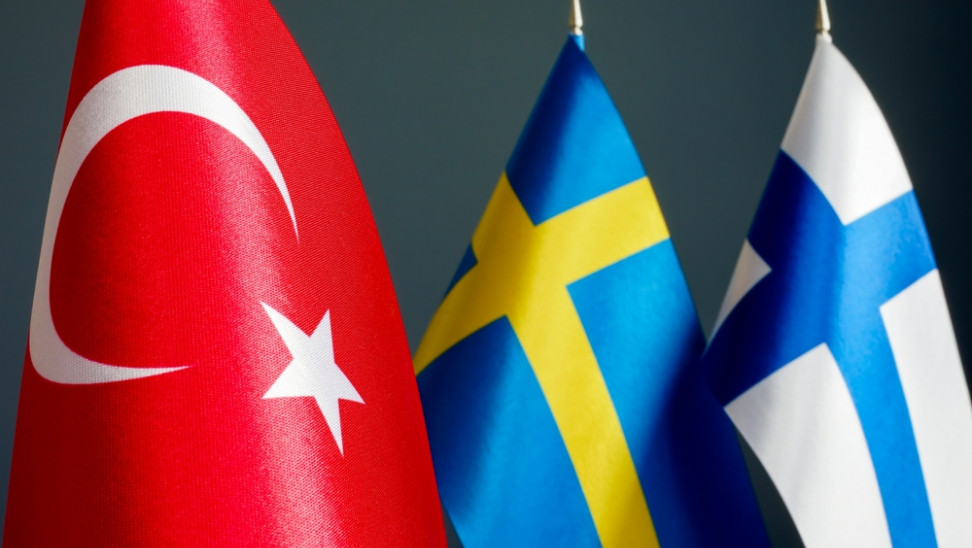Address
304 North Cardinal St.
Dorchester Center, MA 02124
Work Hours
Monday to Friday: 7AM - 7PM
Weekend: 10AM - 5PM
Address
304 North Cardinal St.
Dorchester Center, MA 02124
Work Hours
Monday to Friday: 7AM - 7PM
Weekend: 10AM - 5PM


The reverberations of the Russian invasion of Ukraine, which commenced in February 2022 and has recently entered its fourth month, continue to shake up the international arena. On 18 May 2022, Sweden and Finland submitted their applications to join the North Atlantic Treaty Organization (NATO), signaling a dramatic reversal of their historic policy of neutrality. Their official acceptance into the organization, however, may not be as quick and easy as Swedish and Finnish officials initially hoped. The formal accession process to NATO requires all 30 members of the alliance to approve the countries’ applications and even though the majority of the member countries look favorably upon Sweden and Finland’s application to join, Turkey has indicated its reservations about the process.
Even before Sweden and Finland submitted their official applications, Turkish President Recep Tayyip Erdoğan declared that Turkey would not look favorably upon the two Nordic countries’ joining the military alliance. On 13 May, for instance, President Erdoğan stated that Turkey did not have “positive views” about Sweden and Finland becoming a part of the NATO. Erdoğan claimed that both countries provided safe haven to members of the Kurdistan Worker’s Party (PKK) which Turkey, in addition to the United States and the European Union. Following Sweden and Finland’s official application for membership, Erdoğan reiterated his arguments and pointed out that Turkey will continue to uphold veto until and Finland’s membership until these countries “clearly show that they will stand in solidarity with Turkey on fundamental issues, especially in the fight against terrorism.” Turkey also demands Sweden to abandon the defense weapon export embargo that the Swedish government imposed on Turkey after Turkey’s incursion into northern Syria in 2019.
On the other side of the debate, Sweden and Finland flatly deny Erdoğan’s accusations and emphasize their commitment to fight terrorism. Swedish and Finnish delegations visited Turkey on 25 May, meeting Turkish presidential spokesman Ibrahim Kalin and Deputy Foreign Minister Sedat Önal (Erdoğan refused to see them). Even though Ibrahim Kalın gave a number of positive messages during the press conference following the meeting, he also indicated that Turkey would maintain its position unless Sweden and Finland took concrete steps to address Turkey’s security concerns.
Erdoğan’s uncompromising stance against Sweden and Finland’s NATO membership may seem rather surprising, considering the fact in the past year he has taken a number of steps to break out of the diplomatic isolation in which he had found himself. The Russian invasion of Ukraine, for instance, provided an opportunity for Erdoğan to reestablish ties with the Western countries and (re)present Turkey as a viable diplomatic actor. Even more importantly, Turkey has tried hard to mend its broken relationship with Saudi Arabia and the United Arab Emirates, which were considered to be Turkey’s arch enemies until very recently. In fact, Erdoğan forced Cahit Özkan, a prominent member of the AKP group in the parliament, to resign from his post on 19 May after Özkan had made a number of unflattering comments about the UAE in an interview.
Looking at this picture, it may be reasonable to ask why Erdoğan has decided to assume a confrontational stance when it comes to the issue of Sweden and Finland’s joining the NATO, while his recent attitude towards key regional powers such as Saudi Arabia and the UAE has been much more conciliatory?
The answer, as is case with many things in Turkey these days, is related to the Turkish economy. With the elections officially scheduled for June 2023, the current inflation rate stands at 70 % and the Lira’s depreciation continues while the Turkish Central Bank’s reserves are in the negative. Erdoğan is very much aware that he would not be able to find the foreign cash that he desperately needs to keep the Turkish lira stable from “Western” sources. It is not that he did not try. As recently as February 2022, for instance, Erdoğan sent his finance minister Nureddin Nebati to London to meet with foreign investors. This visit was soon followed by another trip, this time to Washington, D.C. Nebati’s meetings with the representatives of Western financial institutions, however, were mostly unfruitful and he could not find the support he had hoped for as far as foreign investment was concerned. With its credit default swap (CDS) rates, which measure a country’s default risk, standing above 700 (for comparison, Germany’s is 12.50), Turkey is simply not a very attractive destination for Western capital right now, to say the least. Since Erdoğan already knows this, it may be the reason why he believes that he is in a position to risk the already-tense relations with the West and use Sweden and Finland’s joining the NATO to push for a number of concessions, including the upgrade of the F-16 fighter jets that Turkey currently possesses or a tacit consent by the U.S for a new wave of military operations that Erdoğan plans on launching in northern Syria. Moreover, Sweden and Finland are also easy “Western” targets for Erdoğan to direct his anger and try to consolidate his increasingly nationalist support base at home.
The situation is different, however, when it comes regional powers such as Saudi Arabia and the UAE. In the tight situation in which he finds himself, Erdoğan depends on foreign investments and tourism revenues that may come from the regional actors. Both in the UAE Crown Prince’s visit to Ankara in November 2021 and Erdoğan’s subsequent visit to the UAE in February 2022, for instance, economic cooperation between the two countries and investment opportunities in Turkey for Emirati funds were at the top of Erdoğan’s agenda. Similarly, after his U-Turn on the murder of Saudi Arabian journalist Jamal Khashoggi, Erdoğan has recently visited Saudi Arabia at the end of April 2022 where he tried to secure the financial backing of the Saudi regime. As another telling example, Turkish Finance Minister Nebati is also expected to travel to Egypt next month, which would be the first ministerial level visit since 2013.
Taken together, it is easy to see that Erdoğan sees his posturing towards the West as a low-stakes game while it is riskier to alienate regional actors such as Saudi Arabia and the UAE, especially in the short run. For Erdoğan, the relationship with the Western bloc are already at a low point and do not look like they are going to improve significantly any time soon until the elections next year. In fact, he may be calculating that a little show of bravado against the “West” may solidify his domestic image as a strongman. His desperate need for foreign cash, however, makes it obligatory for him to be conciliatory towards Turkey’s regional rivals, even if it means turning back on the positions he previously held.